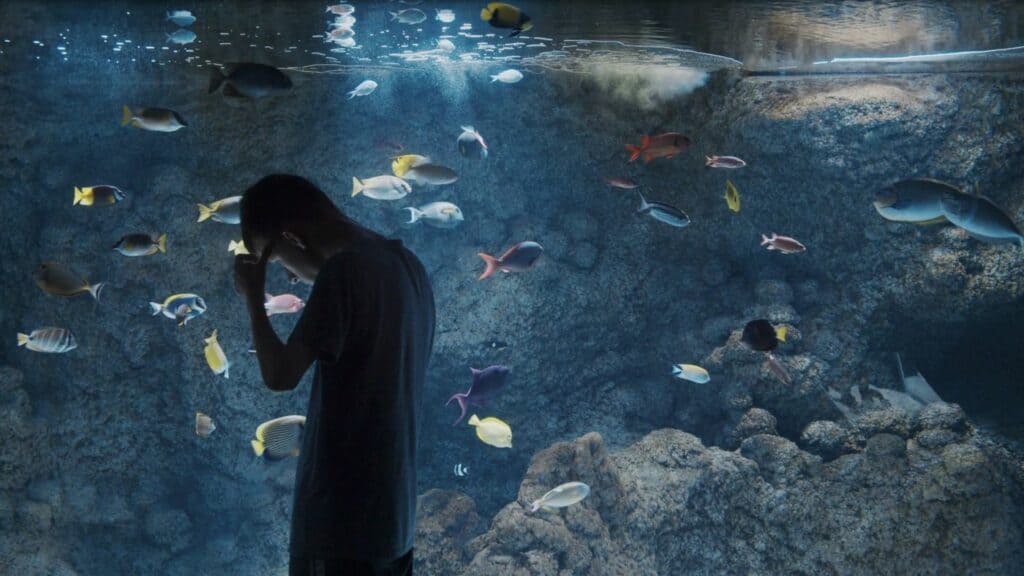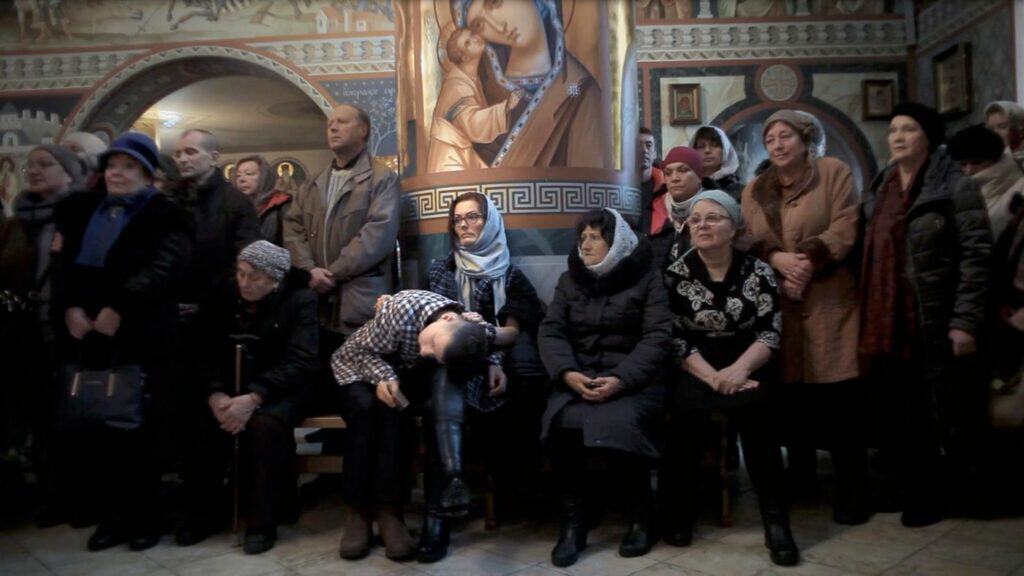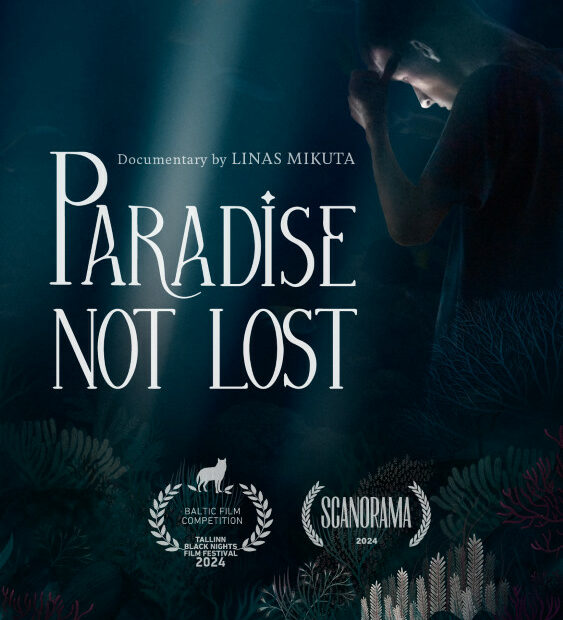Paradise Not Lost (Gabrielius is Neprarastojo Rojauswas) is the latest film directed by Linas Mikuyta. It deals with a pious couple’s tribulations by providing for their autistic son while they are on the road towards a divorce. The woman, Jūratė, dreamed of her own Eden with a husband and a child in an idyllic farmhouse in the middle of the forest. Her dream came true when she met a man who took her to such a place. The birth of their son, named after the archangel Gabriel, should finalise their paradise, but things soon turn sour. Her spouse, Juozas, is not what she wishes for, and Gabriel’s condition does not help the couple deal with their issues.
We first encounter the family when Gabriel and Jūratė are together on a beach. The latter reads Gabriel a fairytale and dances with him on the shore. The sequence has an idyllic quality, if not a paradisiacal one. Gabriel seems to have his own language, and Jūratė insists that he is the child of God. He loves to dance and communicate with animals. However, his fondness for religious ceremonies might not come from the holy aspect alone. The parents are members of the Orthodox church but occasionally find solace in other religions as well, especially Jūratė.

Stranger than Paradise Not Lost
This description of the film makes it sound more literal than it is. Mikuyta does not concentrate on storytelling but rather on ambience and rhythm, sometimes, but not exclusively through rituals. Kristina Sereikaitė’s lensing leans toward the beautiful, and the film is always pleasing to the eye. If it often appears opaque, it might have as much to do with me as the actual work. Films where religion plays a central part can occasionally make me feel like an alien who speaks and only understands an entirely different language. Apropos language, I am not sure if the cinematography, splendid as it is, gels into a coherent form.

At 77 minutes, the film never gets boring, even if some sections are drawn out. Linas Rimša’s score is another major asset of the film. Jūratė’s voice is often heard as in voiceover, which amplifies her loneliness. Possibly, Gabriel is the least lonely individual in the family.
Paradise Not Lost premiered in the Baltic Film Competition at the Black Nights Film Festival.

